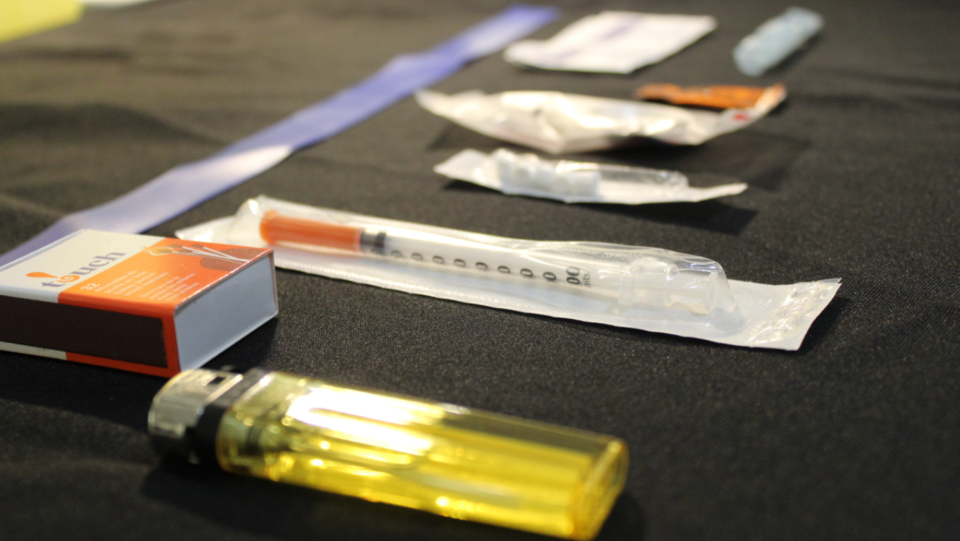Could the Ontario election campaign further delay a decision on Barrie’s supervised consumption site (SCS)?
Lynne Cheliak, director of clinical services with the Canadian Mental Health Association (CMHA) Simcoe County branch, said its application is still under review by Ontario’s Ministry of Health for an SCS at 11 Innisfil St., just around the corner from Barrie Fire headquarters.
“We have had several meetings with (the ministry) to provide further information to them as well as to review and finalize our budget submission,” she said. “The officials were not able to confirm for us whether or not final approvals and or decisions would be made before May 4 when the writ is dropped for the provincial election.
“Given the current opioid crisis in our community and the critical, positive impact (an SCS) would have in the continuum of services in our community, we hope decisions can be made prior to the writ dropping so as not to cause any further delays,” Cheliak added. “Following an approval, we would enter into a capital planning process in order to retrofit the space to operationalize the (SCS).
“We hope the approval will be expedited prior to the writ dropping.”
A writ is the formal, legal document that starts a provincial election in Ontario. The lieutenant-governor and the chief electoral officer both sign two copies of a writ for each electoral district. One copy is sent to the returning officer in each electoral district, giving them the authority to hold an election.
Once the writ is dropped, very little government business gets done until the election is held and the next government gets organized. That would likely be next fall following the June 2 provincial election.
Barrie Coun. Keenan Aylwin says the federal and provincial governments, through Health Canada and Ontario’s Health Ministry, have been dragging their feet on approving the SCS on Innisfil Street since the paperwork was submitted last fall.
“If the provincial government puts election campaigning ahead of people's lives that should be reason enough to vote them out of office,” he said. “The federal and provincial governments must approve the proposed SCS in Barrie as soon as possible.
“Each day that goes by without this life-saving service is a day where we could lose more of our friends, neighbours and family to the toxic drug-supply crisis,” Aylwin added. “We need our local MPPs, MPs and relevant ministers to have the political courage to do the right thing and approve an SCS in Barrie."
Aylwin says such facilities not only save lives, but they can also reduce instances of public drug use and discarded needles while increasing the chances that people will receive the mental health and addictions supports that they desperately need.
BarrieToday asked the Ministry of Health if the dropping of the writ on May 4 for the provincial election would have any effect on the ministry’s decision about the SCS; if no decision was made before May 4, when at the earliest would it be made and announced; if there is a different Ontario government after the election (Liberal, NDP, etc.) how would that affect the decision-making process; and is it the health minister who ultimately makes the decision on a SCS at 11 Innisfil St. in Barrie?
W.D. Lighthall, media relations official with the Ontario Ministry of Health communications division, responded by e-mail.
The province refers to SCS facilities as Consumption and Treatment Services, or an CTS.
“All Consumption and Treatment Services applications are subject to a rigorous screening process. CTS program funding criteria are publicly available,” he said. “This includes obtaining an exemption from the federal minister of health under Section 56.1 of the Controlled Drugs and Substances Act (CDSA).
“CTS applications are reviewed as they are submitted, and timelines for review are expected to vary based on the specifics of each application and discussions with applicants,” Lighthall added. “As per the CTS application process, the ministry will be in contact with the applicant once a decision has been made.”
An SCS provides a safe space and sterile equipment for individuals to use pre-obtained drugs under the supervision of health-care staff; consumption means taking opioids and other drugs by injection, smoking, snorting or orally. The Simcoe Muskoka District Health Unit and the CMHA's Simcoe County branch are its proponents at 11 Innisfil St., if approved.
The SCS requires Health Canada and Ontario Health Ministry approval, along with provincial funding.
Barrie Coun. Natalie Harris said Monday night there is the potential for a local agency to apply for an urgent public health needs site.
Mia Brown, program manager of the substance use and injury prevention program with the health unit, also said the possibility exists.
“To address the opioid poisoning crisis, Health Canada has provided class exemptions to the Controlled Drug and Substances Act… to the provinces and territories as another tool to manage the compounding effects of the opioid poisonings during the pandemic,” Brown said. “This urgent public health needs site (UPHNS) exemption allows the provinces and territories to establish these temporary sites also known as overdose prevention sites within existing shelters or other temporary locations.
“Ontario does not have an approval or funding approach to these UPHNS exemptions. There are a few sites operating in the province of Ontario, however, funding has been secured through private and municipal partners,” she added.
“With regards to a UPHNS in Barrie, several agencies continue to collaboratively explore the potential for a site in the interim while we await responses from Health Canada and the Ministry of Health on the (SCS) applications. No decisions to apply have been made at this time.”
Preliminary health unit data shows that there were 132 confirmed and probable opioid-related deaths in Simcoe-Muskoka in the first nine months of 2021, which was more than 33 per cent higher than the 99 in the first nine months of 2020.



